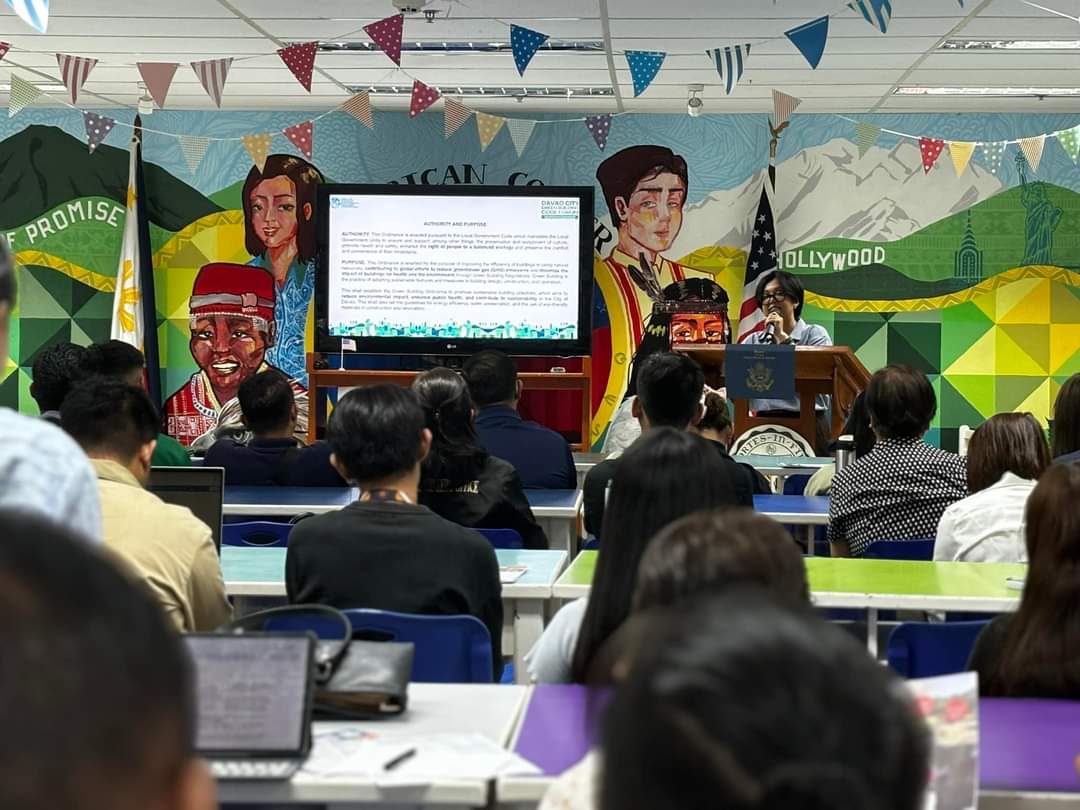DEDICATED citizen-friendly spaces are incorporated in the proposed Green Building Code, an official from the Interfacing Development Interventions for Sustainability (IDIS) said Wednesday.
Milky Shane Gindon, IDIS policy advocacy officer, said the “long overdue” legislation will improve the quality of life of Davaoeños.
“This is not only for the sake of aesthetics but also to ensure that buildings are well-ventilated and inclusive,” Gindon said during the Davao City Green Building Code Forum at the Ateneo de Davao University on Oct. 30.
The draft ordinance highlighted the benefits of these dedicated spaces, particularly for those who are physically challenged or people with disabilities.
Sky-rises and rooftop greenery are designed to serve as green spaces for social activities without spending money to stay in a certain place. They reduce the urban heat island effect and improve indoor environmental quality, which affects the productivity of the employees, she added.
The inclusion of green spaces and indoor plants in buildings will also enhance the quality of work of the employees.
Construction of additional bicycle parking areas is also stipulated in the Code to promote bi-modal transportation and somehow alleviate air pollution in the city.
It also emphasized the reduction of energy and water consumption by incorporating the existing Rainwater Harvesting Ordinance.
During the forum, IDIS sought suggestions from public and private stakeholders to enhance the draft code.
Mark Seng of the Davao Design Society emphasized the importance of using environmentally friendly and locally manufactured materials to construct sustainable buildings.
“To make our places sustainable, the users need to be involved in the planning stage, even with the construction because this will help them also take care of the places better,” Seng added.
Architect Harold Delima of Placemaking Davao stressed the need to map the baseline and assess the current facilities for Davao City to better implement the proposed law.
“When designing, introducing the green building code we should also consider the third spaces to supplement the building code,”
Third spaces refer to social surroundings separate from the usual social environments of home (first place) and the workplace (second place). Among the examples include churches, cafes, bars, clubs, libraries, gyms, bookstores, among others.
Archt. Lorabel Chavez, from the Office of the Building Official, expressed commitment to ensure applicants and proposed projects comply with the standards, once the code is passed.
Gindon said the group will present the revised draft, which would incorporate the suggestion of the stakeholders in another focus group discussion with experts.
She added the group will lobby with the 20th City Council’s environment committee for appropriate legislation before 2024 ends.

